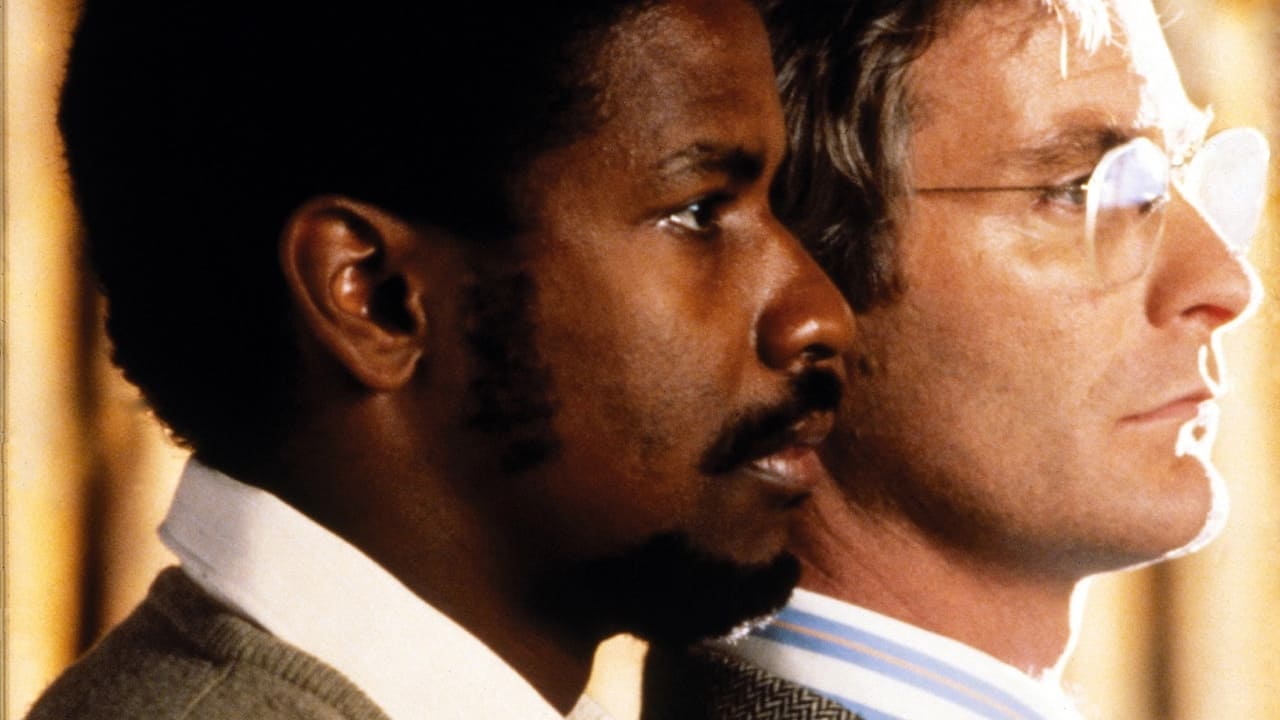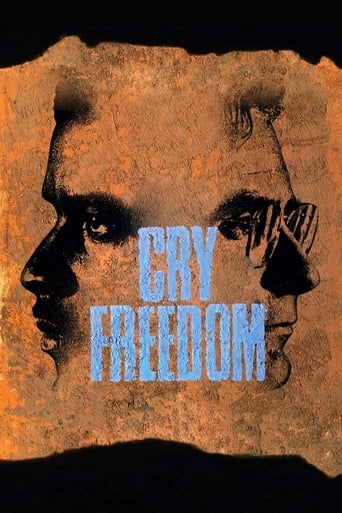

This movie was very interesting especially, since I don't know anything about South Africa and important events that have occurred there. It stars Kevin Kline as Donald Woods who is an editor for a liberal newspaper and hears how black activists have been causing trouble for the apartheid government. One activist, Steve Biko, who Woods disagrees with because he wishes for black South Africans to separate themselves from white South Africans ways of thinking and start thinking for themselves. Woods eventually change his opinion about Biko and once Biko shows Woods how blacks were oppressed in South Africa wants to support him. This becomes even more true when Biko is thrown in prison and tortured to death.Woods finds out what happened to Biko in prison and that the apartheid covered up how he died. Woods is determined to tell the true story even though he is being threatened by the apartheid.The direction and characterization was great especially Denzel Washington as Steve Biko. The style of the film was interesting as it was told in a documentary style, which some people might find the pacing too slow. The scenes where the activists and the protesters are shot by the National Party in South Africa are more disturbing than most movies because it shows whats happening without any cutting and in a documentary style. This is a great movie to watch for people who like watching important historical movies about a few amazing people.
... View MoreA long film about a very important character from South Africa, Stephen Biko. He is one of these Blacks who did not survive apartheid, who actually died a long time before their normal time. The already old film though does not show how important Biko was, what he really represented. His life and his teaching is reduced to little, at best a few witty remarks. The film being from 1987, the objective was to push South Africa over the brink that would lead her to liberation. So the film aims at showing how irrational the South African supporters of apartheid are, in 1987. To show this the film has to look beyond Biko's death, hence to center its discourse not on Biko but on a white liberal journalist and his escaping the absurd system in which he is living. His escape is made necessary because of the victimization he is the victim of, along with his family, and because he wants to publish the first book on Biko, after his death, and that can only happen in England. The film shows a way to escape South Africa, while apartheid is still standing and killing. So do not expect this way to be realistic and true. It could not be. But the film has tremendously aged because it does not show South Africa with any historical distantiation, the very distantiation that has taken place under Nelson Mandela's presidency and that is called forgiveness provided those who want to be forgiven speak up and out. The film is strong and emotional but that very historical limit makes it rather weak today, especially since the film does not mention the third racial community, the Indians. Panegyric books or films all have that defect: they are looking at the person they are supposed to portrait from only one point of view. That explains why the film has aged so much, seems to be coming from so long ago, as if nothing had changed at all. A remake is necessary.Dr Jacques COULARDEAU, University Paris 1 Pantheon Sorbonne, University Versailles Saint Quentin en Yvelines, CEGID
... View MoreIt's sad to view this film now that we know how the ANC got shafted by international capitalism. Biko died for nothing much. Woods achieved little. Yes, outright apartheid was abolished, but all the apparatus of power was reserved by the minority whites, leaving the ANC government more or less impotent. As Naomi Klein writes in The Shock Doctrine, in the talks between the black and white leaderships "the deKlerk government had a twofold strategy. First drawing on the ascendant Washington Consensus that there was no only one way to run an economy, it portrayed key sectors of economic decision making --- such as trade policy and the central bank --- as "technical" or "adminsitrative". Then it used a wide range of new policy tools --- international trade agreements, innovations in constitutional law and structural adjustment programs --- to hand control of those power centres to supposedly impartial experts, economists and officials from the IMF, the World Bank, the GATT and the National Party --- anyone except the liberation fighters from the ANC." The statistical results are horrifying, with not much change accomplished, and AIDS flourishing. Viewing Cry Freedom in this light is deeply ironic --- actually tragic. The ANC has transformed itself from being the solution to being the primary problem.
... View More"Cry Freedom" is not just a movie. It is a historical account, heroic story, and insight into the cultural background of a major event in history. Not only does Denzel Washington do a terrific job of impersonating a motivating, determined hero, Steve Biko, but he delivers a message to the public about the horrors of South Arfrican Apartheid. The story of Biko, an influential leader, and his main "influencee", Donald Woods, is a heartbreaking one. But, the ultimate success of his life can go beyond the atrocities committed in South Africa. "Cry Freedom" manages to communicate to its audience the optimistic aspect of the seemingly disturbing plot. It is because of great films like this one, that the public can become educated on terrible events in history, great leaders who sought to end them, and how we can never allow them to happen in the future. Because of this importance, "Cry Freedom" is an amazing film that should be seen by all.
... View More